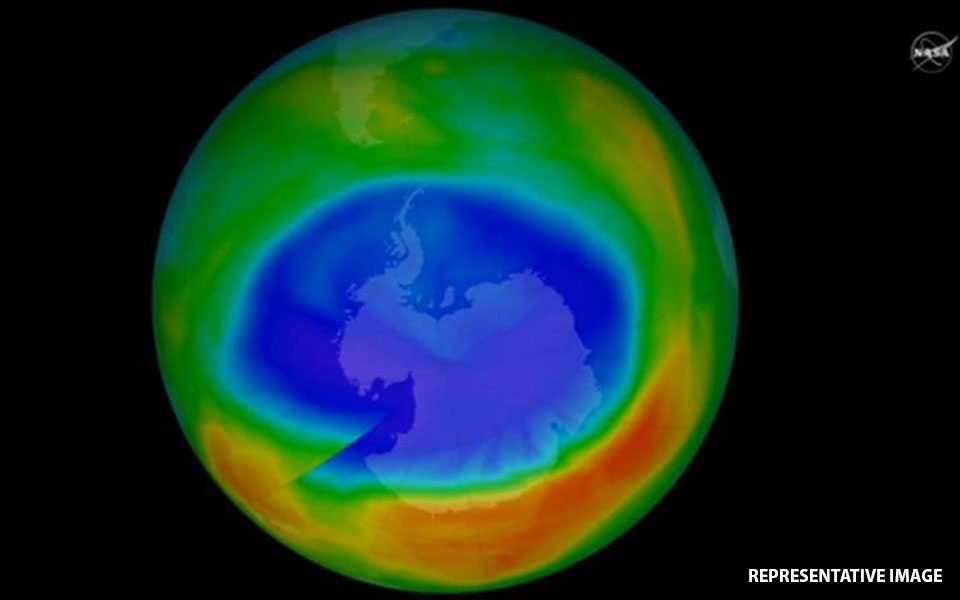Washington, May 17: Emissions of one of the chemicals that can cause hole in the ozone layer are on the rise, despite an international treaty that required an end to its production in 2010, a new study says.
What is even more troubling is that scientists are not sure at present why emissions of this gas are increasing.
This gas, Trichlorofluoromethane, or CFC-11, is a member of the family of chemicals most responsible for the giant hole in the ozone layer that forms over Antarctica each September.
Once widely used as a foaming agent, production of CFC-11 was phased out by the Montreal Protocol in 2010.
The new study, published in the journal Nature, documents an unexpected increase in emissions of this gas, likely from new, unreported production.
"We're raising a flag to the global community to say, 'This is what's going on, and it is taking us away from timely recovery from ozone depletion,'" said lead author of the paper Stephen Montzka, a scientist at National Oceanic and Atmospheric Administration (NOAA) in the US.
"Further work is needed to figure out exactly why emissions of CFC-11 are increasing and if something can be done about it soon," Montzka said.
For the study, scientists at NOAA and Cooperative Institute for Research in Environmental Sciences at University of Colorado, Boulder, in the US made precise measurements of global atmospheric concentrations of CFC-11.
The results showed that CFC-11 concentrations declined at an accelerating rate prior to 2002 as expected.
Then, surprisingly, the rate of decline hardly changed over the decade that followed. Even more unexpected was that the rate of decline slowed by 50 percent after 2012.
After considering a number of possible causes, Montzka and his colleagues concluded that CFC emissions must have increased after 2012.
This conclusion was confirmed by other changes recorded in NOAA's measurements during the same period, such as a widening difference between CFC-11 concentrations in the northern and southern hemispheres -- evidence that the new source was somewhere north of the equator.
Measurements from Hawaii indicate the sources of the increasing emissions are likely in eastern Asia, the study said.
More work will be needed to narrow down the locations of these new emissions, Montzka said.
Let the Truth be known. If you read VB and like VB, please be a VB Supporter and Help us deliver the Truth to one and all.
Kalaburagi: Four men have been arrested in Kalaburagi on charge of hacking a man with lethal weapons and pelting stones at him under the limits of Station Bazaar Police Station recently.
According to police sources, Anand Jalak Shinde (34), Ashitosh Jalak Shinde (30), Imran Mehboob Sheikh (28) and Sohaib Anwar Qureshi have been arrested. The men are accused of the brutal murder of Syed Mehboob, a resident of Station Bazaar Upper Line Hamalawadi in the city.
An FIR was filed by the Station Bazaar Police Station based on a complaint given by Syed Ismail, father of the deceased Syed Mehboob.
Following quick probe, the police team successfully arrested the suspects within 24 hours. The arrested men were produced in court and have been sent to judicial custody.
The City Police Commissionerate has appreciated in an official release the police team’s quick solving of the murder case and arrest of the four men accused of murdering Syed Mehboob.





